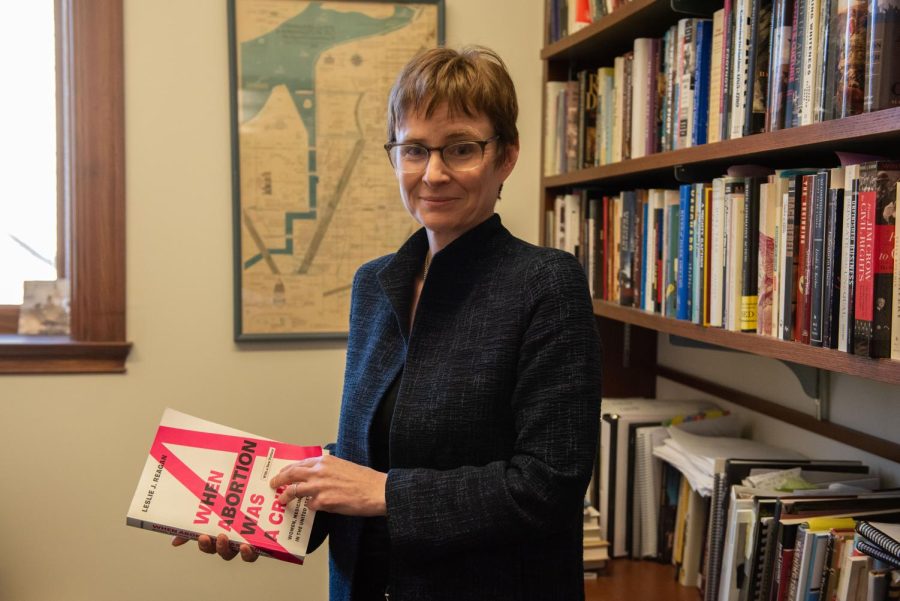History Prof. Kate Masur discusses new course on abortion history in post-Roe world
Madison Bratley/Daily Senior Staffer
History Prof. Kate Masur is teaching a new seminar this quarter on the history of abortion in the United States.
February 1, 2023
History Prof. Kate Masur had considered teaching a course on the history of female reproductive health for many years, knowing many students had not learned about the subject previously.
But, following the U.S. Supreme Court decision to overturn the landmark case Roe v. Wade in June, Masur’s mind was set.
“That decision marked a huge change in the United States, so it seemed really relevant to teach a class on it,” she said.
Masur, a recipient of the American Historical Association’s Littleton-Griswold Prize, is teaching History 393-0: History of Abortion in the United States this quarter. The course covers abortion access from the 18th century to present-day.
Masur said 14 students — including some non-history majors — are taking the course.
“I really wanted to have the class be as diverse as possible in every way,” Masur said. “I wanted there to be opportunities for students who are not in history to register for it.”
Prior to registering, prospective students had to email Masur to express interest and explain how the the topic of abortion history fits into their interests, academic course or previous work.
The process allowed several pre-medicine students to take the course, according to Masur. These students would not have had the chance to take the course if it was filled with history majors first — as seminars often do, she said.
“I have several students in the class wanting to be doctors — wanting to even go into women’s health — and I’m really happy they’re there, along with some history folks and a number of Medill people,” Masur said.
Medill junior Anna Lansford said she was inspired to take Masur’s course following the U.S. Supreme Court’s decision in June.
Lansford was interning for U.S. Sen. Tammy Duckworth’s (D-Ill.) office when the ruling was released.
“I got a lot of calls through my job from people all over Illinois expressing very profound feelings of grief when Roe was overturned,” Lansford said. “And so I wanted to learn more about the history of abortion prior to Roe v. Wade.”
She said many of her other classes focus on modern-day policy, so she appreciates that Masur’s course doesn’t solely focus on current events.
However, Lansford added that she hopes the class will draw more male-identifying students in the future.
“Conversations about abortion shouldn’t be held only in predominantly women’s spaces,” Lansford said.
Medill freshman Simone Garber said the smaller class size lessened the “hierarchy” with the professor-student dynamic.
Garber added that she took the course because she is passionate about feminism and abortion.
“I’m learning a lot now that I haven’t known before, so I’m definitely being humbled but in the best possible way,” Garber said.
Masur said she originally planned to go on leave for research this academic year but postponed her absence for multiple reasons, including her desire to teach the course on abortion history.
She plans to take her leave next academic year, she said, but would like to teach the course again when she returns the following academic year.
“I really hope that (students) come out (of the course) with a lot more knowledge and kind of depth of knowledge of this really important issue,” Masur said.
Email: [email protected]
Twitter: @cassandraratke1
Related Stories:
— What Illinois reproductive rights would look like in a world without Roe v. Wade


